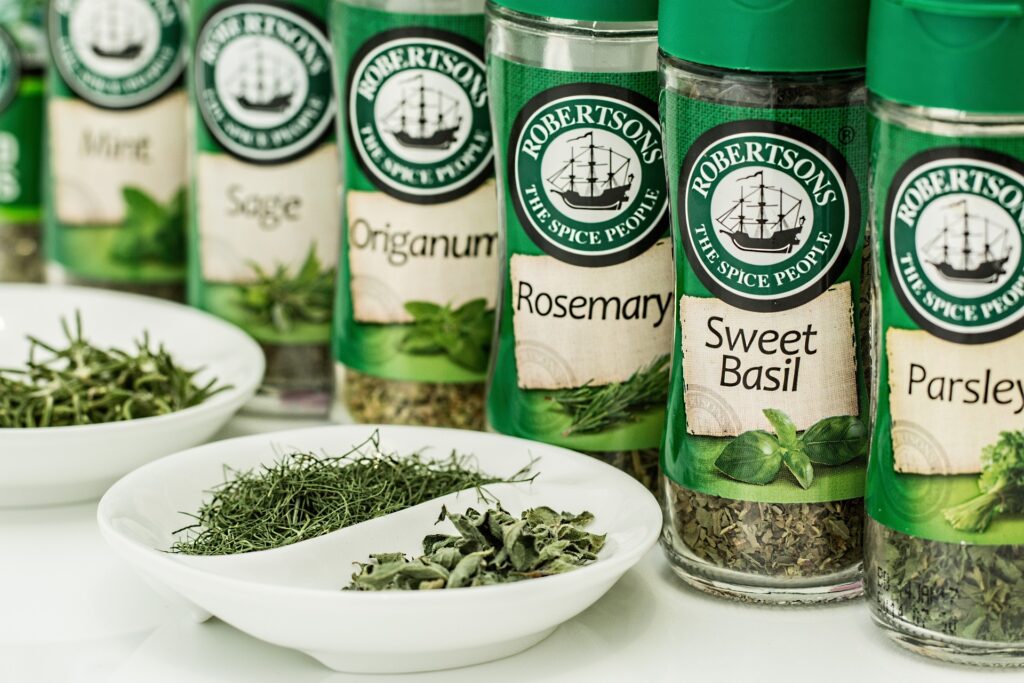If you’re looking to heal naturally, you’ve come to the right place. I’ve got some excellent medicinal plants for you to self-heal.
If you’re not sure how a few plants can help you recover from a health problem, I’m glad you’re here. There’s more to nature than meets the eye.
Medicinal plants actually work?
You’ve probably tried a toothpaste with mint in. And we all know mint is in toothpaste for a reason: it really does clean your teeth and freshen your breath.
When you’re feeling rough and fluey, maybe you’ve put lemon juice and a drop of honey into some hot water. Or you’ve tried a lemon and honey lozenge. That works too.
So, natural medicines are powerful but work with our bodies, not against them.
Herbs are any plant that can be used for meals or for remedies. The first record of medicinal plants goes back to Egypt 4000 years ago, and there’s a rich history of discoveries since then.
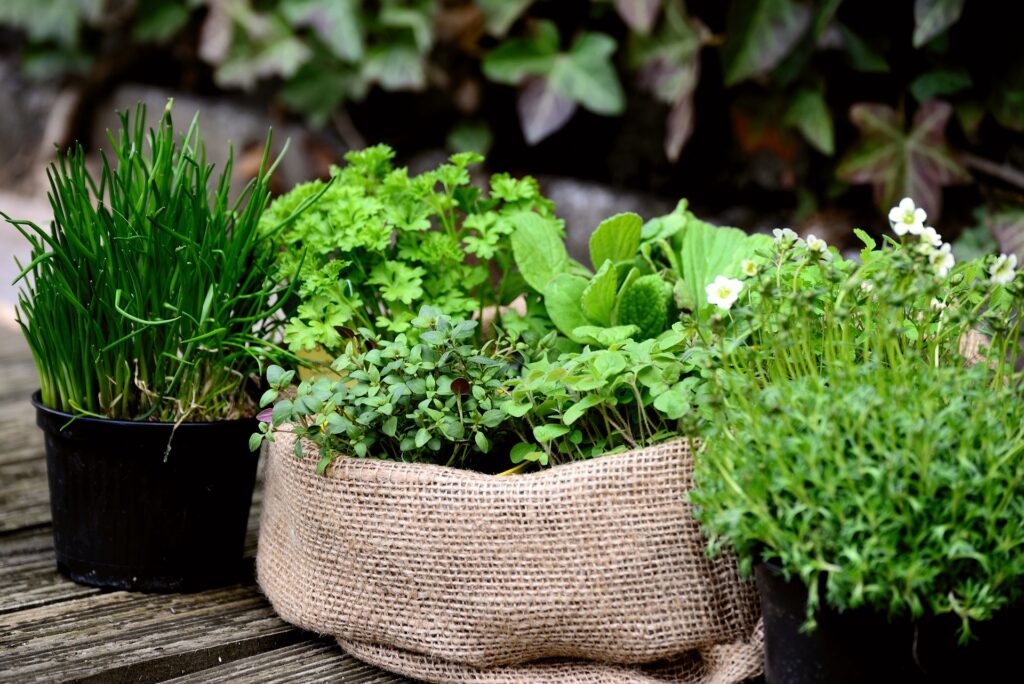
What we know today is a combination of the expertise from European physicians, Arabian physicians, the ancient Egyptians, the Romans, the Greeks, the Indians, the Chinese and native Americans.
All that discovering, testing and recording has revealed that there are thousands of plants growing on earth that are designed to heal us. To be precise, you can find 5,800 in India, 2,500 in China, 800 in Africa and 300 are used in medicine in Germany. And they’ve been used for centuries.
Herbal remedies are as much about prevention as well as cure. They help our bodies stay strong and clean alongside fresh air, exercise and a healthy diet.
What does each herb do?
Here’s a compact rundown of the best medicinal plants for healing. I’ve taken all of these from Healing with Plants: The Chelsea Physic Garden Herbal by Holly Farrell. I highly recommend buying a copy.
The pink hyperlinks in the text are places for you to buy the herb online if you wish. I’ve left common herbs like onion and garlic without a link as they are pretty easy to find.
Headache
- Lavender: massage a few drops into your temples.
- Peppermint: dilute the essential oil into water and dab it onto your temples.
- Oregano: dilute the essential oil to massage into your skin (patch-test first).
- Rosemary: make a hot-water infusion of the leaves for an enjoyable drink.
Fever
- Lemongrass: infuse fresh leaves into hot water for a relaxing, healing drink.
- Honeysuckle: make an infusion of honeysuckle with hot water to relieve sore throats and cool hot flushes.
- Holy basil (tulsi): infuse the leaves in hot water and honey for sore throats, coughs and colds.
- Linden: infuse the leaves in honey or scatter them in a bedtime bath with lavender. This will help you sweat the fever out so drink plenty of water.
Colds and flu
- Cinnamon: infuse in hot water, hot chocolate or mulled wine. Scatter it over porridge, add to curries or to whichever dish you prefer.
- Echinacea: add some drops to water and gargle for a sore throat.
- Eucalyptus: dilute the oil with a carrier oil (coconut for example) and massage it onto your chest. Or add some drops to a bath.
- Garlic and onions: these are best when used raw. Crush the garlic rather than slice it. Add them to any dish you like and take them daily when you have a cold.
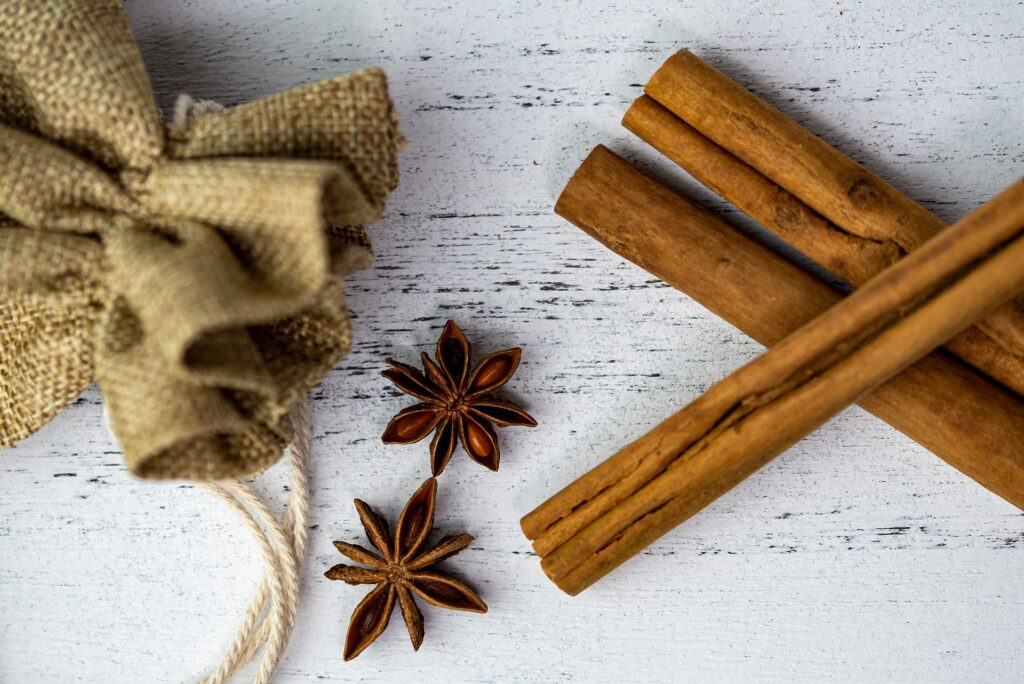
General digestion problems
- Yarrow: add the leaves to salads to aid digestion.
- Chicory: add fresh leaves to salads or fry them in olive oil and garlic. Use the edible flowers as a garnish. The bitterness aids digestion.
- Coriander: add the leaves to a curry or salad for a gentle aid to digestion.
- Cumin: grind it fresh if you can and add to curries, falafel, breads or pickles.
Diarrhoea
- Chamomile: use the fresh or dried flowers in a hot water infusion or into a bath.
- Thyme: infuse in hot water for a tea that serves as a digestive tonic.
Constipation
- Peppermint: Infuse mint leaves in hot water for a tea that aids digestion and reduces bloating.
- Flaxseed: sprinkle whole seeds over porridge, salad, or home-made breads and use ground seeds in sauces, smoothies or yoghurts. They help to ease bowel movements.
- Plantain: infuse the leaves in hot water for a tea that serves as a digestive aid.
Struggling immune system
- Echinacea: take the powdered root or drop form in water to boost your white blood cells.
- Lemon: infuse a slice of lemon in hot water with garlic and cinnamon for a beneficial tea.
- Bilberry: add the fruit to food. You can freeze and preserve it to eat out of system. Powerfully antioxidant.
Hair loss
- Yarrow: use the essential oil with balms on your scalp to prevent hair loss.
- Silver birch: massage the essential oil into your scalp. It prevents hair loss.
Cough
- Garlic honey: Peel and finely slice the cloves of three garlic bulbs and put into a clean jar. Fill the jar with honey, ensuring all the garlic is covered by stirring it. Seal, label and date it, and leave it to infuse. It will be ready the next day. Finish it within three months.
- Elecampane: nibble small pieces of root after preserving the pieces in a jam – it acts like a cough drop. Take them sparingly. It will shift persistent phlegm.
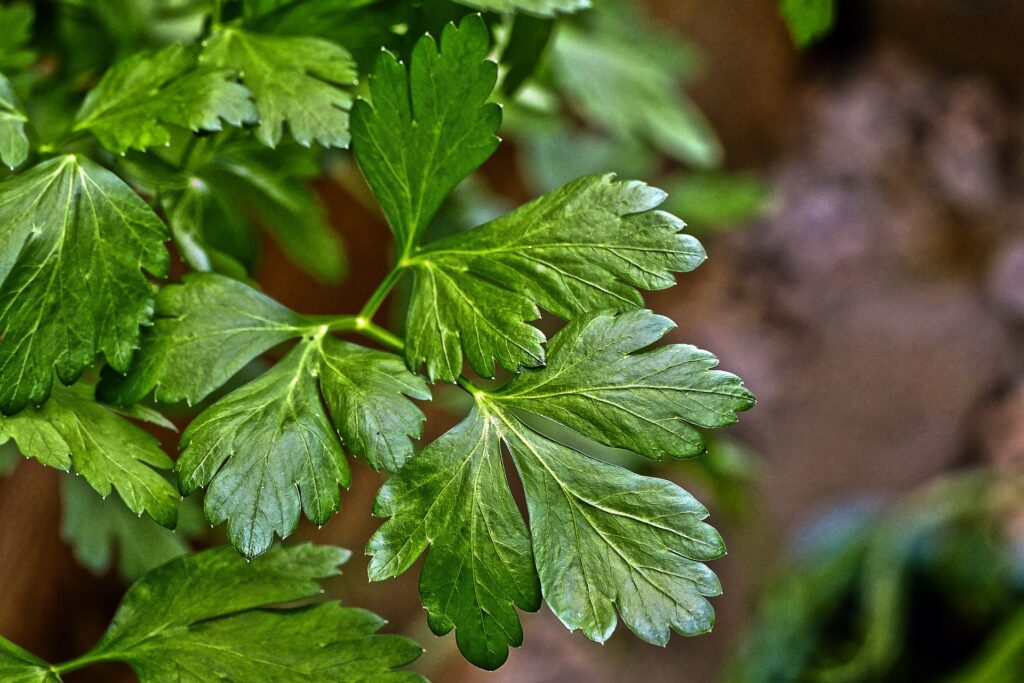
Fatigue
- Echinacea: add drops to water to help recover from post-illness fatigue.
- Cleavers: infuse a handful of leaves in a cup of cold water overnight to be drunk the following day. Add a slice of lemon or ginger for flavour. It makes for a good tonic in the spring.
- Maté: take this as a tea for a short-term energy boost but do not take this with meals.
Heart problems
- Green tea: enjoy as a tea break, other good brands are Pukka or Heath and Heather. It lowers blood pressure and cholesterol.
- Turmeric: the excellent properties of turmeric are best absorbed when consumed with black pepper. Add it to milk or oil, rice, eggs or sauces. Prevents inflammation and cardiovascular disorders.
- Motherwort: prepare in a tea and sweeten with honey to taste to calm your heart.
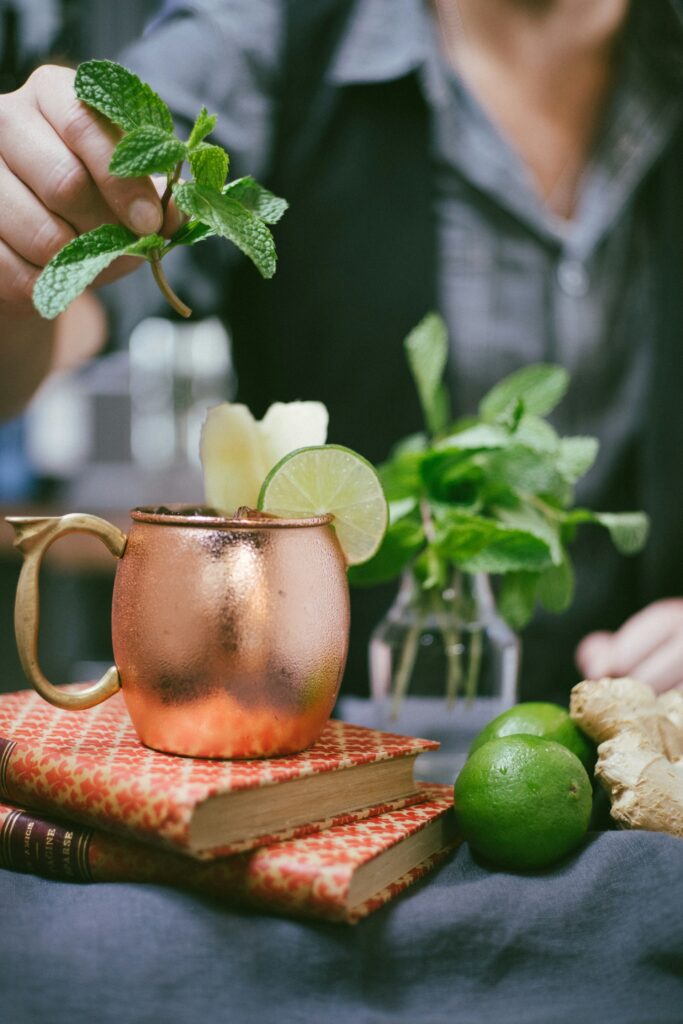
Sleep problems
- Ashwagandha: take it as a powder by sprinkling small amounts over food bring down blood pressure, stress and anxiety for better sleep quality.
- Chamomile: use the fresh or dried flowers in a hot water infusion or into a bath. It relaxes the mind and eases insomnia.
- Lavender: drop some essential oil onto your pillow or into a bath. Massage into your temples for relaxation.
- Valerian: add the roots to hot water for a relaxing tea. It regulates and slows the nervous system. Do not take this alongside anti-depressant medication.
Period pain
- Cramp bark: massage the oil into the affected areas or add to water. Take regularly throughout the month for results.
- Lady’s mantle: add fresh or dried leaves to a make a tea and drink daily for period pain.
- Raspberry leaf: buy a box of this and put a teabag in hot water for a pain-reducing tea.
- Yarrow: use the leaves in hot water and drink this for regulating menstrual flow.
Anxiety
- Chamomile: use the fresh or dried flowers in a hot water infusion or into a bath.
- Lavender: drop some essential oil onto your pillow or into a bath. Massage into your temples for relaxation.
- Lemon balm: infuse the leaves in hot water for a calming tea.
- Oregano: massage the essential oil into your skin, but patch-test first.
- Passionflower: infuse the flower or leaves into hot water for a relaxing tea before bed.
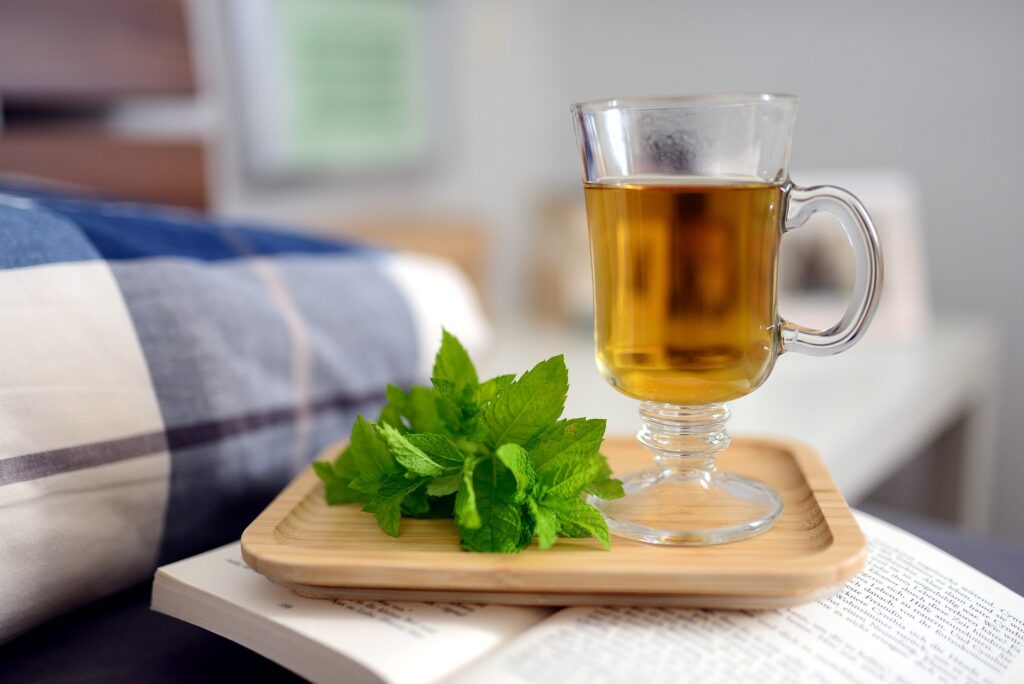
Do medicinal plants work for everything?
Not everything, no. If you’ve got a bad cut, you’re likely to need stitches. For emergencies like heart attacks, you definitely need a blue light escort to A&E. If you’ve got multiple health problems, it’s likely they’re linked and you’ll need a diagnosis to get to the bottom of the issue.
But using medicinal plants to cultivate a healthy environment in your body does a world of good that sets you up for health and strength. I’ve tried a few of these remedies and they really do work. Each herb is designed to complement and heal our body without harming it. If you believe in the Creator, take a look at Psalm 104 v 14.
I’d love to hear your opinion. Or, if you have some remedies to share, please comment below!
Read more of my blog about health here or take a look at my copywriting portfolio here.
